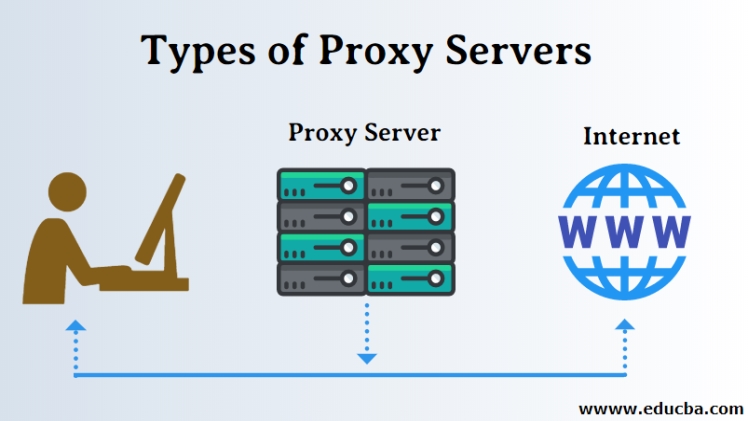If you’ve ever access the Internet from a corporate or library PC, you’ve probably used a proxy server. Their main purpose is to serve as a buffer between your device and the rest of the Internet. In other words, the proxy server, for example, from Proxy-Seller exchanges data with other servers on your behalf.
The proxy server accepts all your requests and redirects that traffic to the website or application you are trying to access. They also receive responses to your queries and send them to you.
What does a proxy server do?
As your “representative” on the Internet, a proxy server can do many useful things for both home and corporate users. The most common uses for proxy servers are:
Increased security
Proxies are most commonly used as the public face of the entire network. This is especially useful in corporate settings. If all of the company’s traffic goes through the proxy server, it will appear as if it is coming from the same address, keeping the internal infrastructure and users anonymous and secure. More importantly, it makes the hackers’ job much harder. If someone wants to attack a specific device or user on the network behind a proxy server, they are almost impossible to find. For such a safe networking, one can always rely on thepirateproxybay service
Content Filtering
Proxies can control incoming connection requests by acting as a firewall. However, they can also serve as an excellent content filter, blocking all unwanted outbound traffic. A proxy server can help a business make sure employees cannot access blocked websites and services from the corporate network. Lack of access to social media and other “time users” such as YouTube dramatically improves productivity and efficiency.
Bypassing Content Filtering
Just as proxies can prevent access to certain websites, they can also help you access those that are not available without a proxy. Many companies offer the same products and services at different prices in different parts of the world. Using a proxy can make you indistinguishable from a visitor who is in a completely different part of the world. This allows you to get better deals, book cheap flights, use your favorite streaming services, and more.
Caching and load balancing
Proxies can also serve as temporary storage for faster access to frequently used data. This feature is especially useful for businesses and educational institutions. Instead of sending your requests to a website, proxies can cache it and simply return the content you want, which dramatically reduces latency, speeds up downloads, and minimizes bandwidth usage. On the other hand, reverse proxies can distribute traffic between different servers, offering the same content to reduce congestion and improve efficiency.
Firewall
As you probably know, a firewall serves as a barrier between the network and the rest of the Internet, blocking unwanted access. A proxy server offers a great place to host a firewall that can intercept any malicious requests (such as viruses, malware, or hackers) before they reach the network.
What are the main benefits of using proxy servers?
While there is no airtight firewall (other than offline operation), proxy servers are pretty close to the magic 100%. Here’s why:
Privacy
All proxies hide your IP address from the rest of the Internet. If you want to hide your IP address from the websites, applications and services you use on the Internet, there is no better solution.
Control
The Internet is rife with inappropriate content. If you’re a parent looking to control your kids’ surfing and shield them from what they shouldn’t see, content filtering proxies can help you.
Unlimited Access
More and more content is being blocked geographically for various reasons. Proxies offer an easy way to get around these restrictions by replacing your IP address with another from anywhere in the world.
Are there any downsides to using proxy servers?
You probably know that there are many free proxies out there. Most of them are insecure and serve as a front for hackers to steal your identity, whether it is monitoring your traffic or redirecting your requests to fraudulent websites. This can cause many problems such as identity theft, banking information abuse, remote access to your device, etc. Moreover, free proxies are usually very unreliable and can be disconnected at any time. Since they are free and available to everyone, you can use them with an unknown number of other users, which will lead to a sharp drop in your speed.
Not all proxies are the same
The best way to avoid all these problems is to use the services of a residential proxy from a provider you can trust with your sensitive personal and corporate data. Premium proxies are versatile, secure, reliable, and affordable.

